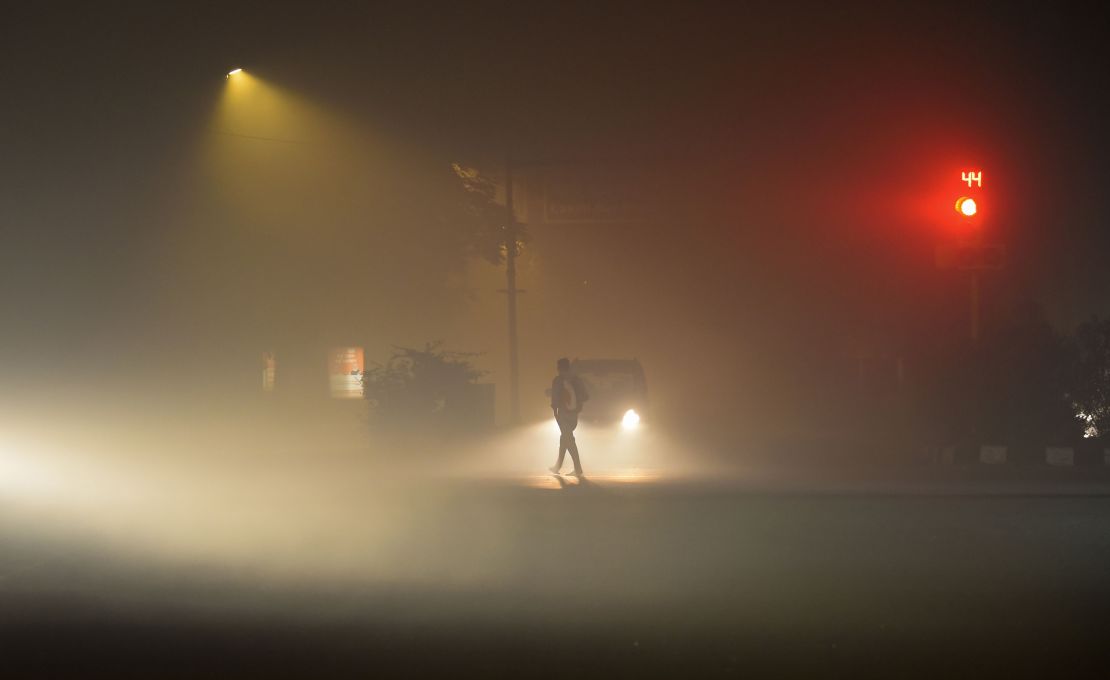Air quality in India’s capital dipped to ‘hazardous’ levels Friday after the festival of Diwali was celebrated with the usual widespread use of fireworks, defying a citywide ban.
According to the Air Quality Index (AQI), most locations in Delhi were recording an AQI above 500 on Friday morning, with the index maxing out at 999 in a few locations.
The AQI measures the concentration of PM2.5 particulates per cubic meter of air, which in high amounts can cause cardiovascular and respiratory disease.
The World Health Organization deems anything above an annual average of 5 micrograms as unsafe – the average reading in Delhi on Friday was 706 micrograms, according to Reuters.
Delhi chief minister Arvind Kejriwal issued a ban on firecrackers last month in an effort to control the city’s pollution levels, however Diwali firecracker celebrations on Thursday mostly proceeded as normal and likely worsened the smog.
At the United States embassy in New Delhi the AQI stood at 197 on Wednesday morning. By Friday the AQI was recorded at 492 and classified as ‘hazardous’.

In an evening bulletin issued on Friday, India’s government-run System of Air Quality and Weather Forecasting And Research (SAFAR) said pollution levels in Delhi were “severe” and worse than levels recorded in 2020.
“(In the last 24 hours), PM2.5 level is higher as compared to 2020 but much less than that in 2018,” SAFAR said in their bulletin.
SAFAR directly attributed the drop in air quality to the celebrations on Thursday night. “Firework emissions on the night of Diwali degraded air quality from very poor to severe category,” SAFAR said.
According to SAFAR, stubble burning of agricultural land also contributed significantly to the PM 2.5 levels, peaking at 36%.
Delhi has been struggling with the issue of poor air quality for years, an issue exacerbated by stubble burning by farmers in nearby regions during the harvest season and the celebration of Diwali with firecrackers.
A report published in September by the US-based research group Energy Policy Institute at the University of Chicago (EPIC), found that poor air quality in India could be reducing the life expectancy of hundreds of millions of people by as much as nine years.
Despite Delhi’s fireworks ban, the city’s environment minister Gopal Rai told CNN affiliate CNN-News18 on Friday that India’s ruling Bharatiya Janata Party encouraged people to burst firecrackers.
SAFAR said the pollution would likely lift over the weekend provided no more fireworks were let off, despite the fact that stubble burning was expected to continue.
Additional reporting by Reuters.



